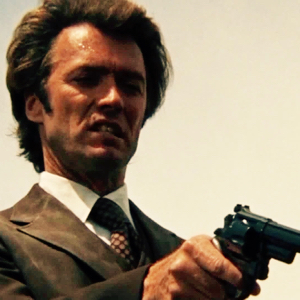Yesterday afternoon an armed gunman walked onto the campus of Seattle Pacific University and killed one student and wounded two others before being taken into custody. Earlier today local police apprehended a man suspected of killing two with a firearm in the Central District over the weekend, and this afternoon police took into custody an armed man who was brandishing a weapon on Capitol Hill.
Advocates of gun control will say that the aftermath of a shooting is a time for mourning and not an event to be politicized. But at the rate shootings are happening, all we’re doing is mourning.
Compared to other cities Seattle has relatively little gun-violence. Our firearm-homicide rate is roughly half the national average, and we’re also well below the national rate for suicides with firearms. That said, more people will die this year in our county from gun violence than from motor vehicle crashes.
If any act can leave you with an overwhelming sense of futility, it’s writing; if any act of writing can leave you drowning with an overwhelming sense of futility, it’s writing about the subject of gun control. The temptation, when considering the giant that is the NRA and its legion of quisling political puppets, is to shake one’s head, look downward and accept that this is just life in America.
Taking on gun advocates is Sisyphean, for even in the wake of a massacre of little children (Sandy Hook) our country couldn’t pass substantive, meaningful gun-control legislation, and let’s be honest—Sandy Hook feels like it happened two-decades rather than two-years ago.
Just a couple weeks ago there was another shooting at the UC Santa Barbara campus. In response, Adam Gopnik wrote a really thoughtful piece in the New Yorker online. He had a lot of good things to say, but I found none more relevant than the following comments about the language surrounding the gun-control debate:
We know that slogans masquerading as plain speech are mere rhetoric because, on a moment’s inspection, they reveal themselves to be absurd. The best answer to a bad guy with a gun is a good guy with a gun reveals itself to be a lie on a single inspection: the best answer is to not let the bad guy have a gun. “Guns don’t kill people, people do.” No: obviously, people with guns kill more people than people without them. Why not ban knives or cars, which can be instruments of death, too? Because these things were designed to help people do things other than kill people. “Gun control” means controlling those things whose first purpose is to help people kill other people. And the idea that you can be pro-life and still be pro-gun: if your primary concern is actually with the sacredness of life, then you have to stand with Richard Martinez, in memory of his son.
The people who openly prevent, obfuscate, or make more challenging useful restrictions on gun control rely upon specious arguments to substantiate the following: They want to protect people’s rights to own a tool whose sole purpose is to kill, even though that tool is consistently being used to kill people. (Gun advocates may not inherently be “bad” people in some existential/moral sense, but they’re certainly defending the indefensible, or at the least allowing for the perpetuation of terrible violence. So maybe they’re pretty bad after all.)
I referred above to the NRA and its political pals as a giant. While that can be intimidating, it’s important to remember that sometimes even giants get slayed by little children with stones. So if you don’t like this shit, pick up the nearest rock and throw it.
Make a ruckus—contact your elected representatives, participate in community forums, write an essay for your local paper, call the NRA and tell them what a mischievous snake-pit of fuck-heads they are… Get creative. Do anything but lower your head and accept this as “the way things are in America.”
